
Infinite Domains is a generic role-playing game system published by Infinite Concepts in 1996.

Infinite Domains is a generic role-playing game system published by Infinite Concepts in 1996.
Infinite Domains is a universal role-playing system that can be used to create a role-playing game adventure or campaign. [1]
To create a character, the player first randomly determines eight basic attributes — Affinity, Control, Dexterity, Intellect, Speed, Strength, Vitality, and Luck. These then determine nine secondary attributes such as Endurance and Movement. The player then chooses a career from three choices — Warrior, Professional, or Magus — which determines the skills that are available. The player is given a pool of points with which to purchase these skills. Random determinations from a Height & Weight table, and a Family Background Table complete the character. [2]
During combat, time is divided into six-second rounds. Each character has a number of Action Points equal to one-third of its Speed. Each desired action — fighting, moving, picking a lock, looking for an item — requires a certain number of Action Points. To determine what the character can do in one round, the player "buys" actions with the character's available Action Points. The character can do as many things as the player desires until it runs out of Action Points. [2]
To see if a challenging task can be completed successfully, the player must roll percentile dice equal to or less than the relevant skill value that the character possesses. [2]
The player determines what sort of attack the character is attempting, rolls percentile dice, and then consults a table to see how much if any damage has been dealt. [2]
Infinite Domains, a 110-page softcover book, was created by Steve Hemmesch, illustrated by Anthony Schrock, Damion McDunn, and Pat Thomas, and published by Infinite Concepts in 1996. [2] The company produced no further products.
In the December 1986 edition of Dragon (#236), Rick Swan was initially skeptical of a "generic" role-playing system, recalling past failures such as Eternal Soldier (1986), and Worlds of Wonder (1982). However, Swan was pleasantly surprised by the "streamlined character creation system", the action point system and the combat system. He was not as impressed by the magic system, or some imprecise language that provided "head-scratching prose." He concluded by giving the book an average rating of 4 out of 6, saying, "For do-it-yourselfers in the market for a universal system, Infinite Domains makes an excellent alternative to GURPS and Fudge ; it’s less demanding than the former, more serious than the latter." However, he ended with a warning to prospective gamemasters about the work that would be involved in designing a campaign: "Remember: Infinite Domains has no setting, scenarios, or NPCs. It’s only a frame. You have to provide the picture." [2]

The Generic Universal Role Playing System, or GURPS, is a tabletop role-playing game system published by Steve Jackson Games. The system is designed to run any genre using the same core mechanics. The core rules were first written by Steve Jackson and published in 1986, at a time when most such systems were story- or genre-specific. Since then, four editions have been published. The current line editor is Sean Punch.

Marvel Super Heroes (MSH) is a licensed role playing game set in the Marvel Universe, first published by TSR in 1984. The game lets players assume the roles of Marvel superheroes such as Spider-Man, Daredevil, Hulk, Captain America, the Fantastic Four, and the X-Men. The game was designed to be easily understood, and this approach proved popular. TSR published an expanded edition, Marvel Superheroes Advanced Game in 1986.
Rolemaster is an extremely complex fantasy tabletop role-playing game published by Iron Crown Enterprises in 1980. The game system has undergone several revisions and editions since then.
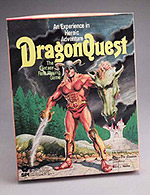
DragonQuest is a fantasy role-playing game originally published by Simulations Publications (SPI) in 1980. Where first generation fantasy role-playing games such as Dungeons & Dragons (D&D) restricted players to particular character classes, DragonQuest was one of the first games to utilize a system that emphasized skills, allowing more individual customization and a wider range of options.
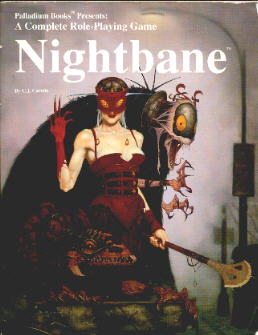
Nightbane is a dark fantasy role-playing game and setting created by C. J. Carella and published by Palladium Books.

Character creation is the process of defining a player character in a role-playing game. The result of character creation is a direct characterization that is recorded on a character sheet. This may include a representation of the character's physical, mental, psychological, and social attributes and skills in terms of the specific game's mechanics. It may also include informal descriptions of the character's physical appearance, personality, personal back-story ("background"), and possessions. Games with a fantasy setting may include traits such as race, class, or species. Character creation is the first step taken by the players in preparation for a game.

Mercenaries, Spies and Private Eyes (MSPE) is a tabletop role-playing game designed and written by Michael A. Stackpole and first published in April 1983 by Blade, a division of Flying Buffalo, Inc. A second edition was later published by Sleuth Publications in 1986, but Flying Buffalo continues to distribute the game. In 2019 a new revised Combined Edition of MSPE was published by Flying Buffalo which brought the different material from the previous editions and included additional new rules and expansions to the original rpg. MSPE's mechanics are based on those of Tunnels and Trolls, with the addition of a skill system for characters. A few adventure modules were also released for MSPE.
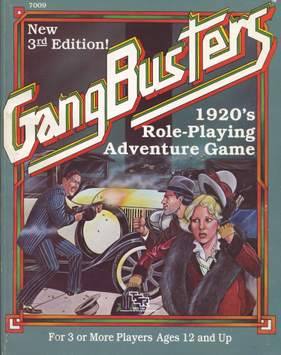
Gangbusters is a roleplaying game published by TSR, Inc. in 1982 that emulates gang crime in the 1920s during American Prohibition.
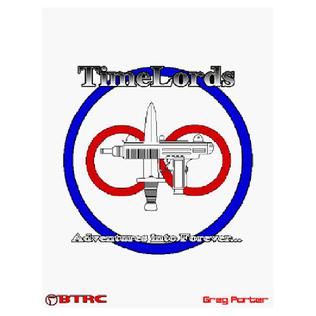
TimeLords is a set of time travel role-playing games by Greg Porter and published by Blacksburg Tactical Research Center (BTRC). The first two editions used a custom d20-based game system; the most recent edition uses the EABA system from BTRC.

Masterbook is a generic role-playing game that was published by West End Games (WEG) in 1994.
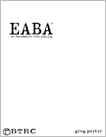
The End All Be All game system, commonly known as EABA and pronounced "ee-buh", is a role-playing game system from Blacksburg Tactical Research Center (BTRC). It is a generic gaming system designed to adapt to any imaginary gaming environment. It was created by Greg Porter in 2003. The game cites the Hero System, GURPS and Call of Cthulhu as influences in its development.
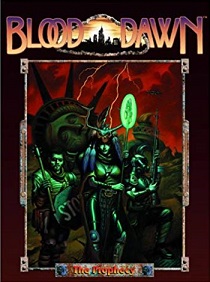
Blood Dawn is a cyberpunk role-playing game designed by Lawrence R. Sims and first published by Optimus Design Systems in 1996.

Bubblegum Crisis is a near-future cyberpunk role-playing game published by R. Talsorian Games in 1996 that is based on the anime television series Bubblegum Crisis.

Gatecrasher is a light-hearted science fantasy role-playing game published by Grey Ghost Press in 1996.

Hong Kong Action Theatre! is a martial arts role-playing game published by Event Horizon Productions in 1996. A revised edition was published by Guardians of Order in 2001.
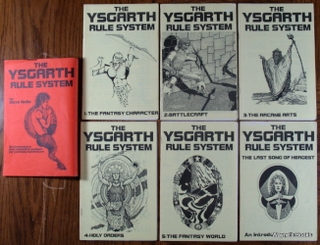
Ysgarth is a fantasy role-playing game published in 1979 by Ragnarok Enterprises. Several editions were subsequently published over the next twenty-five years.
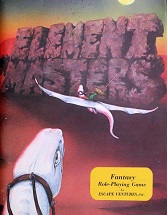
Element Masters is a role-playing game published by Escape Ventures in 1983 that mixes elements of fantasy and science fiction.

Aliens Adventure Game is a combat-oriented role-playing game published by Leading Edge Games in 1991.

Don't Look Back: Terror is Never Far Behind (DLB) is a supernatural and paranormal horror-themed role-playing game set in modern times that was initially published in 1994 by Mind Ventures. The player characters investigate supernatural and paranormal events for a secret government agency. A more light-hearted second edition was published in 1995. The game received positive reviews in game periodicals including Dragon and Arcane.

GateWar, a fantasy role-playing game published by Escape Ventures in 1994, is the retitled third edition of the role-playing game Element Masters.